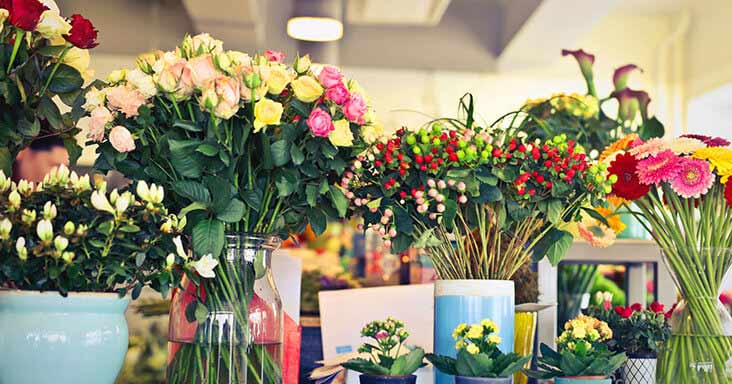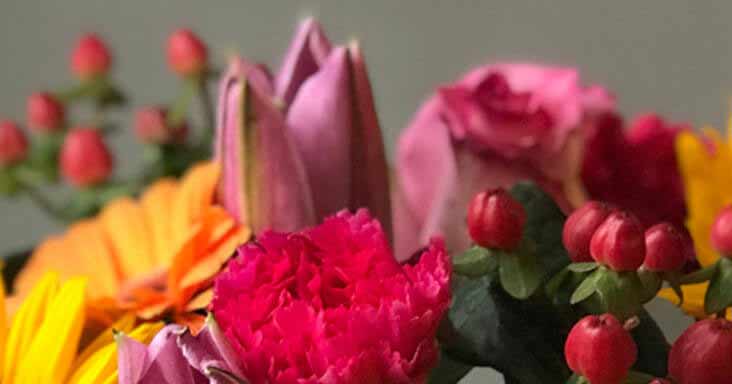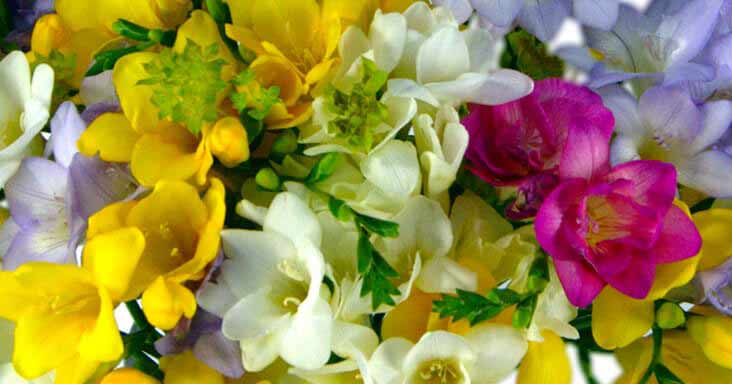Have you ever eaten a rose-petal salad or violet ice-cream? Ever since I was a little girl, playing with my flower-fairy dolls, I've always loved the idea of eating flowers and been delighted by the occasions such opportunities arose, like when my friend's sister decorated a cake with candied pansies, or when my mum put fresh nasturtiums in our salad.
There are other flowers I, like many people, usually think of simply as vegetables and have eaten without realising that they are in fact flowers, like artichokes, cauliflower, broccoli and capers (which are in fact tiny pickled flower buds), but they don't carry the same thrill as pretty petalled blossoms.
You'd be surprised at how many beautiful edible flowers there are out there. For a more comprehensive list and recipe ideas have a look at Linda Stradley's article on the What's Cooking America website, but here are a few of my favourites:
Nasturtiums — Nasturtiums are a common edible garden flower. The beautiful blossoms come in fiery shades of yellow and red and have a peppery, spicy flavour, similar to watercress. They make an eye-catching, tangy addition to salads as well as pretty garnishing next to any dish.
Roses — Rose flavour is known to many through its addition in turkish delight and chocolate rose creams but the petals can also be used whole in exotic recipes like Thai Rose Petal Salad or Quails in Rose Petal Sauce, as featured in Laura Esquivel's magical-realist novel, Like Water for Chocolate. All untreated roses are edible but the darker and more scented varieties have a more pronounced flavour. When cooking with rose petals you should remove the white ends of the petal as these can have a bitter taste. Rosebuds and petals can also be used to make a subtly flavoured herbal infusion.
Elderflower — While the deep purple berries can be made into jam and elderberry wine autumn, the tiny yellow-white blossom of the elderberry bushes which are a common feature of British gardens and countryside can be made into sweet cordial, refreshing in summer served cold and good for colds made hot. They can also be sprinkled into pancake batter for crepes with a pungent floral twist, perfect with lemon and sugar. Only the fruit and the flowers are edible –the rest of the plant is poisonous – so make sure you remove the stems when cooking with the flowers.
Pansies — These common garden flowers come in a variety of bright shades including deep purples and vibrant yellows and have a grassy flavour. They make a pretty addition to green salads, fruit salads and desserts. Along with many other flowers, they make great decorations as when candied and can be used to adorn cakes, ice-cream and sorbets.
Violets — Violets have a distinctive perfumed flavour. Like their cousins, pansies, they make decoration added to salads or candied for desserts. They can also make a special embellishment in cocktails, there's even a Violet Cocktail made with violet liqueur. I also discovered divine violet ice cream when I was on holiday in France. .
A word of caution!
Not all flowers are edible and some are poisonous and can make you very sick, so only eat flowers if you are are sure what they are and that they are safe to eat.
You should also make sure that any flowers you eat are organic: have been kept well clear of pesticides and other chemicals often used in flower cultivation. Even if the chemicals have only been used on other parts of the plant they may well have spread into the flowers.
And remember, when you've got some good ones don't overindulge as too many flowers can cause stomach complaints!




